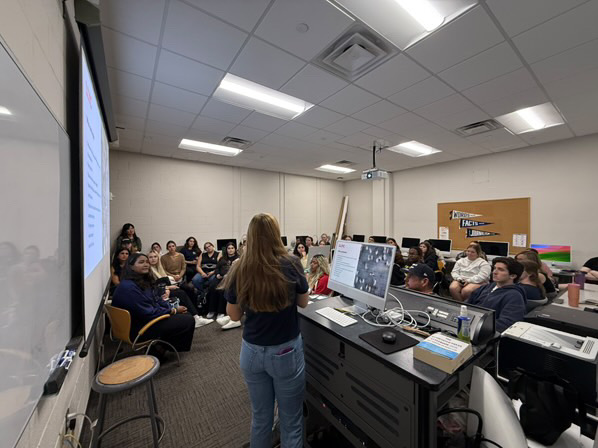OU reaches new Carnegie research classification tier
The university has recently reached a new level of classification when it comes to funded research and development.
Oakland University has achieved the Doctoral University: High Research Activity (R2) classification and the second highest tier in funded research, according to the Carnegie Classification of Institutions of Higher Education.
The R2 classification, according to the Carnegie website, means OU has “awarded at least 20 research/scholarship doctoral degrees during the update year and also institutions with below 20 research/scholarship doctoral degrees that awarded at least 30 professional practice doctoral degrees in at least 2 programs.”
These degrees and scholarships include mostly funded research.
Dr. David Stone, chief research officer and a professor in the department of philosophy, said OU had been aiming to reach R2 classification for many years.
According to Stone and the website of Carnegie classifications, there are over 130 schools in the classification OU is in. Other Michigan schools in this ranking include Michigan Tech, Eastern Michigan University and Marquette University.
Dr. Kevin Corcoran, dean of the College of Arts and Sciences, said not every college pushes to reach the High Research Activity classification OU achieved.
“It’s not something you apply for, it’s something that they evaluate about the institution,” Corcoran said. “So in a certain respect you can say our entire time as an institution we’ve been working on it.”
He also reported the research being conducted is by both faculty and staff.
Among the students, both graduates and undergraduates can get involved in the research and be awarded for it.
There are many things done with the research. The research itself could help send a student off to graduate school whether it be at OU or somewhere else.
“Medical schools look favorably upon undergraduate students who have been involved in research programs and doing research,” Corcoran said. “They do everything a professional would do except they do it under the supervision of a professor or a professional.”
“We sit in this middle space where we are big enough that we have people who are getting grants,” Corcoran said. “But we are small enough that we focus enough on undergraduate education where they can get directly involved.”
According to Stone, the next plan for the university and its classification is to grow stronger and widen the areas that need more attention.
“We want to strengthen the areas that need to be strengthened and broaden the areas that need to be broadened,” he said.
Some of the stronger research subjects, according to Corcoran, include physics and specifically medical physics. Other areas include biology, chemistry and math.
The subjects that need to be broadened — but are still strong in their own right — are areas such as psychology. Corcoran said faculty, students and higher-ranking individuals want to conduct more funded research in delving into the “darker sides of personality” and “the way animals think.”






Joseph T. Hogan, DPM • Feb 2, 2019 at 1:30 PM
Congratulations to Dr Kevin Corcoran with his expertise in Graduate Medical Education.